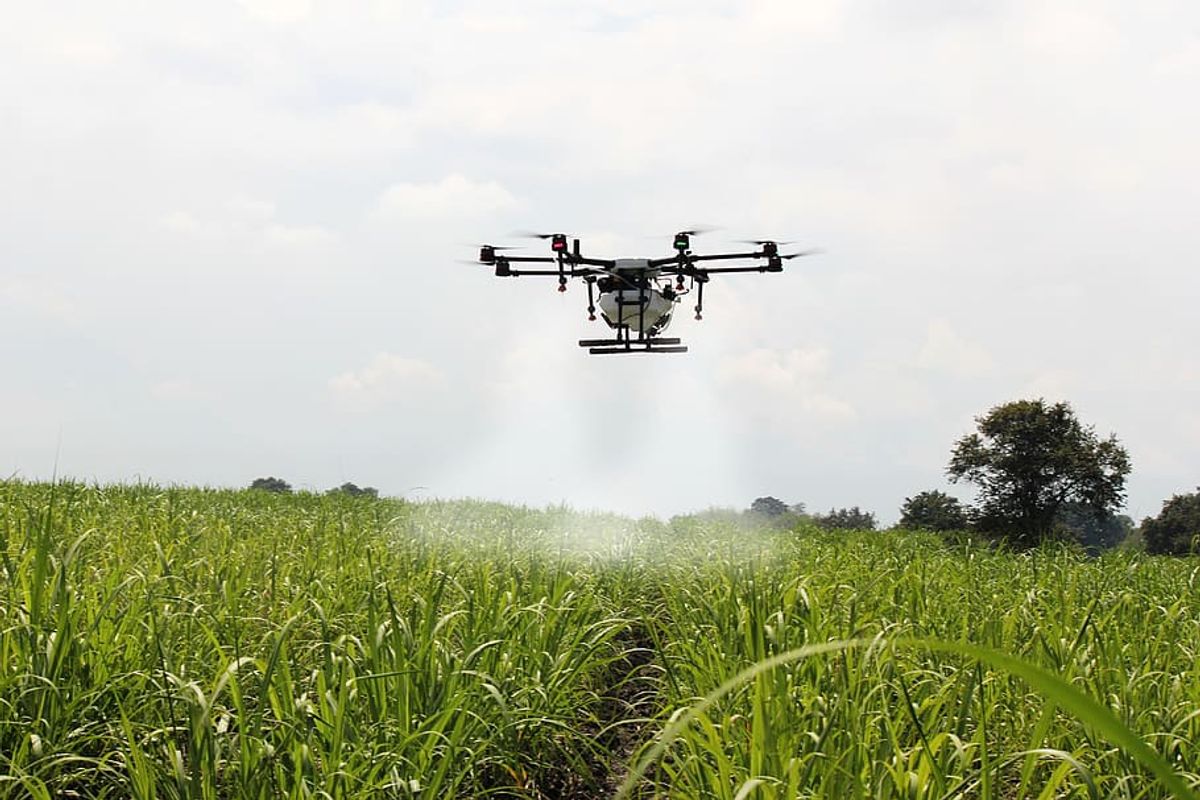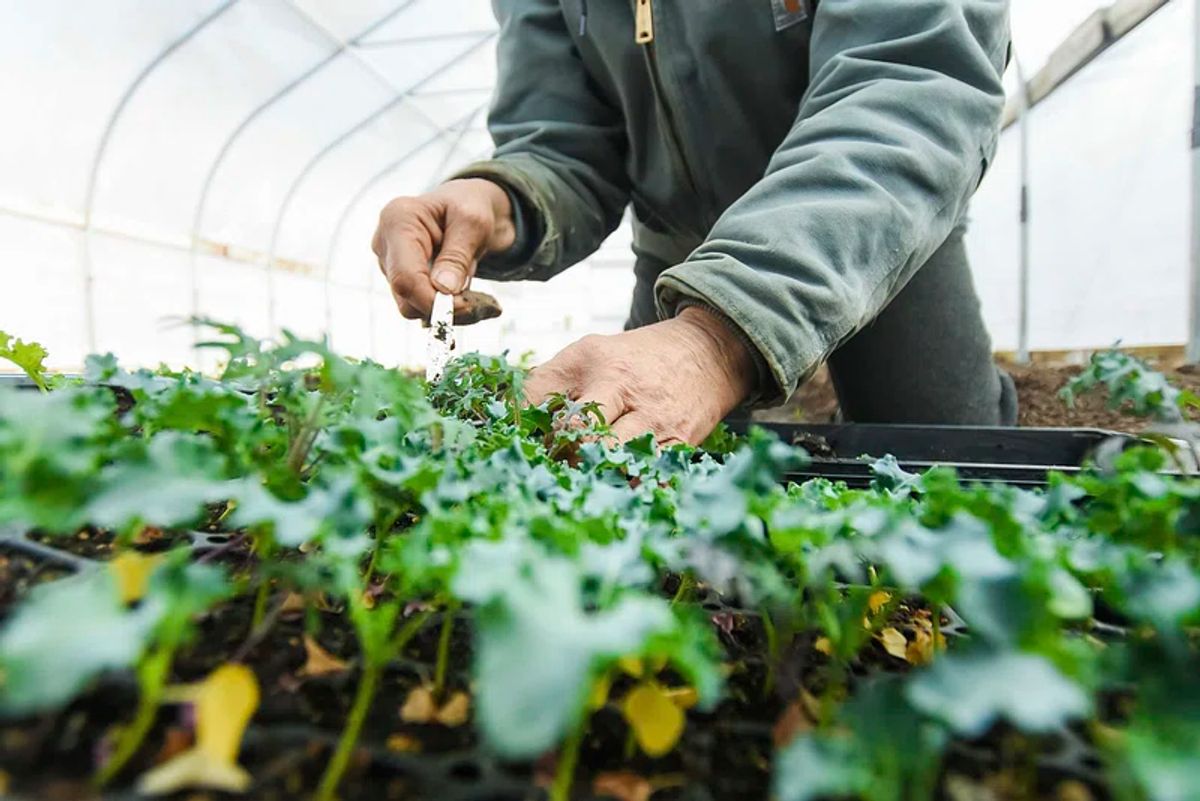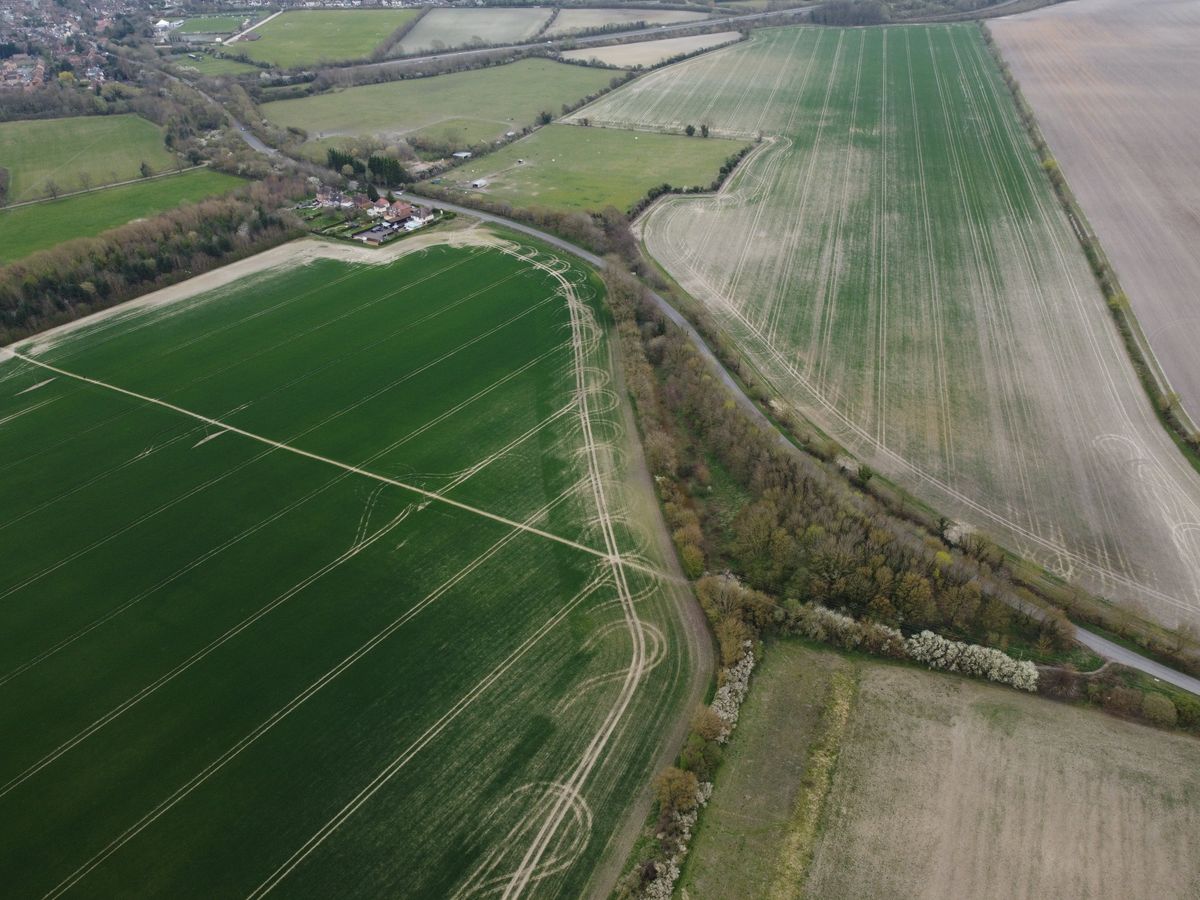Innovating the Fields:
Modern agriculture has witnessed a surge in innovative practices that harness the power of soil biology to optimize nutrient availability while simultaneously reducing the need for synthetic fertilizers and minimizing environmental impact. This article explores key aspects of sustainable agriculture and modern agronomic techniques that are reshaping the field of farming and food production worldwide.
Table of Contents
Key Takeaways
- Incorporation of biological and ecological processes such as nutrient cycling and soil regeneration is essential for sustainable agriculture practices.
- Decreased use of non-renewable and unsustainable inputs, particularly environmentally harmful ones, is crucial for long-term agricultural sustainability.
- Utilizing farmer expertise not only enhances productivity but also promotes self-reliance and self-sufficiency in farming communities.
- Improving soil quality through sustainable methods like no-tillage farming and agroforestry is vital for the long-term viability of agricultural production.
- Reducing environmental degradation and encouraging the adoption of sustainable techniques are key to mitigating the global impact of agriculture.
Innovative Sustainable Agriculture Practices

Incorporation of biological and ecological processes
The shift towards sustainable agriculture necessitates a deep understanding and incorporation of biological and ecological processes. Agricultural sustainability suggests a focus on both genotype improvements and improved understanding of the complex interactions within agricultural ecosystems. This includes practices such as nutrient cycling, soil regeneration, and nitrogen fixation, which are essential for maintaining long-term productivity and health of the land.
- Ecological farming as a practical development
- Introduction of symbiotic species to enhance sustainability
- Reduction in ecological debt and elimination of dead zones
By integrating these processes, farmers can reduce their reliance on non-renewable inputs, which are often environmentally harmful. Moreover, the use of farmer expertise is crucial in adapting these practices to local conditions, promoting self-reliance and self-sufficiency. The knowledge-base about soil microorganisms and their ecological benefits is expanding, offering new ways to optimize agricultural systems like Forest Gardens.
The integration of ecological principles into farming practices is not just about improving crop yields; it’s about fostering a resilient agricultural system that can withstand environmental challenges and support biodiversity.
The potential for specialized automata to scan and respond to soil and plant situations is an exciting frontier. This technological advancement could make ecological farming a primary user of robotics and expert systems, further enhancing the efficiency and sustainability of food production.
Decreased use of non-renewable inputs
The shift towards sustainable agriculture is fundamentally about reducing the reliance on non-renewable resources. Minimizing the use of these inputs not only preserves the environment but also enhances the long-term viability of farming. For instance, the integration of nectar plants in rice production systems in East Asia has led to a remarkable 70% decrease in insecticide use and a 5% increase in yields, showcasing the potential of ecological solutions.
Renewable energy sources, such as solar-powered irrigation systems, represent a closed-loop approach that decouples food production from fossil fuel energy. This transition is crucial for achieving ‘energy-smart’ agricultural systems that are less dependent on finite resources and more resilient to external shocks.
- Enhanced adoption of conservation tillage practices
- Reduction in insecticide use
- Use of more environmentally benign herbicides
- Boosting yields to reduce the need for converting land to agriculture
Sustainable agriculture aims to decrease environmental degradation and increase food output, striking a balance that benefits both the planet and the population.
Utilizing farmer expertise for self-reliance
Empowering farmers through the utilization of their own expertise is a cornerstone of sustainable agriculture. Farmers possess a wealth of knowledge that is crucial for the self-sufficiency of agricultural practices. By tapping into this reservoir of experience, farmers can innovate and adapt to changing conditions without relying heavily on external inputs.
Self-reliance in agriculture is not just about independence from non-renewable resources; it’s also about creating a resilient system that can withstand economic and environmental challenges. The following points highlight the benefits of leveraging farmer expertise:
- Enhanced problem-solving skills for issues like pest management and irrigation.
- Improved adaptability to local conditions and climate variability.
- Increased innovation in sustainable practices and technologies.
By fostering a collaborative environment, farmers can share their insights and develop solutions that are tailored to their unique agricultural contexts. This approach not only strengthens the community but also promotes a more sustainable and productive agricultural system.
Soil Management for Sustainable Agriculture

Improving soil quality through sustainable methods
The essence of sustainable agriculture lies in its ability to enhance soil quality without depleting its natural wealth. No-tillage farming stands out as a pivotal practice, preserving soil structure and biodiversity. Similarly, the integration of agroforestry systems can significantly reduce soil erosion while improving water retention.
Sustainable soil management practices include:
- Utilizing compost from local recycling centers
- Maintaining crop residues post-harvest to protect soil surface
- Implementing keyline design to optimize water distribution
- Establishing windbreaks to combat wind erosion
Modern agriculture’s shift towards innovative practices that leverage soil biology not only optimizes nutrient availability but also curtails the reliance on synthetic fertilizers, fostering a healthier ecosystem.
Farmers’ expertise plays a crucial role in executing these methods effectively, ensuring that the land remains fertile and productive for future generations. The collective adoption of these techniques is essential for maintaining the delicate balance between agricultural productivity and environmental stewardship.
Importance of soil management for existing farms
Effective soil management is crucial for the sustainability and productivity of existing farms. As global agricultural production increases, the availability of arable land diminishes, making it imperative to optimize the use of existing farmlands. Sustainable practices such as no-tillage farming, agroforestry, and integrated pest management not only enhance soil quality but also ensure the longevity of the land’s productivity.
Soil management techniques are diverse and tailored to specific environmental conditions. They include strategies to reduce wind erosion, reincorporate organic matter, and prevent water run-off, which are essential for maintaining soil fertility and structure. The benefits of sustainable soil management may not be immediately visible, unlike conventional agriculture’s quick fixes, but they accrue over time, leading to healthier soil ecosystems and more resilient farming systems.
Sustainable agriculture is the most effective form of food production for maintaining soil conditions and ensuring climate-resilient cropping systems.
The key factors for a successful farming site are climate, soil, nutrients, and water resources. Sustainable agriculture focuses on replenishing the soil and conserving water, thereby reducing the reliance on non-renewable resources. This approach is fundamental for the long-term viability of farms and the prevention of nutrient depletion and land degradation.
Challenges and Strategies in Sustainable Agriculture

Labor-intensive nature of sustainable agriculture
The shift towards sustainable agriculture often means embracing more labor-intensive practices. Unlike conventional farming, which relies heavily on machinery and chemicals, sustainable methods prioritize manual labor and the meticulous care of crops. This approach not only supports the reduction of harmful chemicals but also promotes the growth of healthier crops.
However, this increase in labor demands can present significant challenges. Farmers must balance the need for more hands-on work with the economic realities of farming. Sustainable agriculture requires not just more time and effort but also a well-trained workforce capable of implementing these practices effectively.
The economic implications of sustainable agriculture cannot be overlooked. While the benefits to the environment and public health are clear, the financial viability of such practices is a critical factor in their adoption.
To address these challenges, a combination of strategies is necessary. Here is a brief overview:
- Training and education of the workforce
- Investments in new technology and sustainable products
- Financial incentives to offset initial costs
- Development of markets for sustainably produced goods
Economic challenges and investments in new technology
The transition to sustainable agriculture is often hindered by economic challenges. Financial barriers, such as low profitability, insufficient incentives, and limited capital investments, can deter farmers from adopting sustainable practices. The shift requires not only financial resources but also a commitment to training and the acquisition of new technology, which can be costly.
Italics play a significant role in the decision-making process for farmers considering sustainable methods. Those who are more willing to take risks and invest in non-traditional farming techniques, like non-inversion tillage, may be more inclined to adopt sustainable practices despite the economic hurdles.
Sustainable agriculture demands a paradigm shift in both mindset and material resources. The initial investment in sustainable technology can be substantial, but the long-term benefits often justify the expenditure.
Farmers’ willingness to adopt new technologies varies based on several factors, including their aversion to risk and the availability of reliable information. The table below illustrates the relationship between farmers’ preferences for adopting new practices and their risk tolerance:
| Risk Tolerance | Preference for Adoption |
|---|---|
| High | Early Adopter |
| Moderate | Cautious Adopter |
| Low | Late Adopter |
Ultimately, the economic viability of sustainable agriculture hinges on the balance between immediate costs and future gains. The development of supportive policies and financial mechanisms can play a crucial role in facilitating this balance.
Global Impact of Sustainable Agriculture

Reducing environmental degradation
Sustainable agriculture plays a pivotal role in mitigating the adverse effects of conventional farming on the environment. By integrating practices that enhance ecological balance, such as nutrient cycling and soil regeneration, sustainable agriculture reduces the reliance on harmful non-renewable inputs. This shift not only preserves biodiversity but also ensures the long-term viability of farming lands.
Energy efficiency and the reduction of greenhouse gas emissions are central to sustainable agricultural practices. These efforts align with broader environmental sustainability goals, such as climate change mitigation and conservation. The ecological performance of sustainable agriculture is evident in its ability to provide non-volatile and non-leachable nitrogen sources, which are crucial for maintaining the health of sensitive and protected regions.
Sustainable agriculture contributes significantly to poverty reduction by creating resilient and diversified livelihoods. Small-scale farmers, when empowered, can drive the adoption of sustainable techniques that lead to reduced environmental impacts.
Certification systems like organic certification, Rainforest Alliance, and Fair Trade play a significant role in promoting sustainable practices. They provide a framework for farmers to adopt methods that are not only environmentally sound but also socially responsible. The following table illustrates some of the key sustainable agriculture certifications and their focus areas:
| Certification | Focus Area |
|---|---|
| Organic | Biodiversity, soil health |
| Rainforest Alliance | Ecosystem conservation, worker rights |
| Fair Trade | Social equity, economic empowerment |
Encouraging adoption of sustainable techniques
The transition to sustainable agriculture is not just a matter of changing practices; it’s about fostering a broader shift in the agricultural paradigm. Incentives play a crucial role in encouraging farmers to adopt sustainable methods. Public policy, targeted advertisements, and legislation can serve as catalysts for this change, making sustainable practices not only mandatory but also desirable.
To effectively encourage the adoption of sustainable techniques, it is essential to understand and address the barriers that farmers face. These include economic obstacles such as low financial return, lack of financial incentives, and the need for capital investments in new technology. Overcoming these barriers requires a multifaceted approach:
- Providing financial incentives and subsidies to offset initial costs.
- Offering training and support to build human and material capital.
- Creating market demand for sustainably produced goods.
By enhancing the adoption of practices like conservation tillage, reducing insecticide use, and selecting more environmentally benign herbicides, we can significantly reduce the global impact of agriculture. This shift not only alleviates the pressure to convert additional land but also contributes to food security and environmental protection.
Ultimately, the goal is to integrate sustainable agriculture into the fabric of global farming, ensuring it becomes a cornerstone of food security and environmental stewardship. The well-being of our planet and future generations depends on our ability to foster change through sustainable agriculture practices.
Conclusion
In conclusion, the advancement of sustainable agriculture and modern agronomic techniques is crucial for addressing the challenges faced by the agricultural industry. By incorporating innovative practices that prioritize soil health, nutrient optimization, and environmental sustainability, farmers can enhance efficiency and productivity while minimizing negative impacts on the environment. The shift towards sustainable agriculture requires a combination of techniques, including soil management practices, reduced use of non-renewable inputs, and the integration of biological and ecological processes. Embracing sustainable agriculture not only benefits the farmers and the environment but also contributes to global food security and economic development in rural communities. It is imperative for farmers to adopt sustainable techniques to ensure a more resilient and sustainable future for agriculture.
Frequently Asked Questions
What are some innovative practices in sustainable agriculture?
Innovative practices in sustainable agriculture include the incorporation of biological and ecological processes, decreased use of non-renewable inputs, and utilizing farmer expertise for self-reliance.
Why is soil management important for sustainable agriculture?
Soil management is vital for sustainable agriculture as it helps improve soil quality, which is essential for existing farms to maintain optimal conditions for agricultural production.
What are some challenges in sustainable agriculture?
Challenges in sustainable agriculture include the labor-intensive nature of the practices and economic challenges associated with investing in new technology.
How does sustainable agriculture impact the environment globally?
Sustainable agriculture aims to reduce environmental degradation caused by farming practices and encourages the adoption of sustainable techniques to minimize negative environmental impacts.
What are some strategies to encourage adoption of sustainable agriculture?
Strategies to encourage adoption of sustainable agriculture include reducing environmental degradation, promoting conservation tillage practices, and increasing yields to alleviate pressure on converting additional land for agriculture.
How does sustainable agriculture contribute to economic development in rural communities?
Sustainable agriculture plays a role in increasing rural economic development by promoting self-reliance and self-sufficiency among small-scale farming communities, although it may require investments in new technology and training of the workforce.


